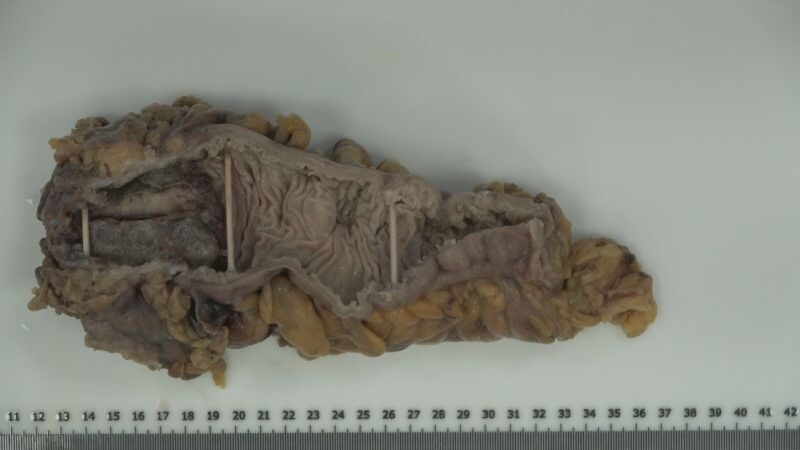Rawia Mohamed, Head of the Anatomical Pathology Department at Burjeel Medical City, shared a post on LinkedIn:
“A recent case of colonic adenocarcinoma pT3 pN1c recieved . One important Biomarker that need to be done by histopathologist in these tumors is MMR IHC. Here are some key Updates and Insights on MMR in Colorectal Cancer:
1. MMR Biomarkers: The four main MMR proteins—MLH1, MSH2, MSH6, and PMS2—are typically assessed using immunohistochemistry (IHC). Loss of any of these proteins suggests deficient MMR (dMMR), which correlates with MSI-high status and often indicates a better prognosis in early-stage colorectal cancer. MSI-high tumors are more responsive to immunotherapy, particularly PD-1 inhibitors.
2. Clinical Relevance:
Sporadic Cases vs. Lynch Syndrome: dMMR in colorectal cancer can be due to sporadic mutations, often from MLH1 promoter methylation, or hereditary factors such as Lynch syndrome. Identifying MMR protein loss helps to distinguish sporadic MSI cases from those potentially due to Lynch syndrome.
Immunotherapy Eligibility: The detection of dMMR/MSI-high tumors has become essential for identifying patients who may benefit from immunotherapy, especially in metastatic settings.
3. When to Perform MMR Staining:
All Colorectal Cancer Patients: Guidelines recommend MMR IHC testing for all colorectal cancers at diagnosis, particularly in patients under 50, given the high incidence of Lynch syndrome in this group.
Early-stage Cancers: Testing early-stage (stage II and III) cancers can help guide treatment decisions. Patients with dMMR may not benefit from adjuvant chemotherapy, especially with 5-FU alone.
Family History and Younger Age: For patients with a strong family history of colorectal or other related cancers, or those diagnosed under 50, MMR IHC can help assess the risk of Lynch syndrome.
4. Expanded Use of MMR Testing:
Some guidelines suggest reflex testing in endometrial cancers as well, due to the high likelihood of Lynch syndrome.
Pathologists may also consider MMR testing in other cancers associated with Lynch syndrome (e.g., gastric and ovarian cancers), though the decision is typically guided by clinical context.
By using MMR IHC testing in colorectal cancer, pathologists can play a vital role in guiding personalized treatment plans, helping with genetic counseling referrals, and improving outcomes through precision medicine.”

Rawia Mohamed is the Head of the Anatomical Pathology Department at Burjeel Medical City and an Associate Professor at Khalifa University. She previously worked as a consultant at Sheikh Shakhbout Medical City.
More posts featuring Rawia Mohamed.


